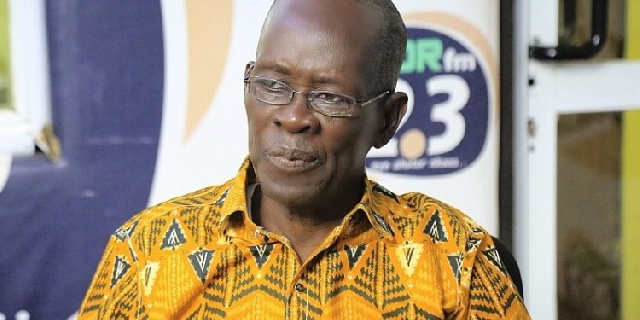Oil Palm Development Policy: Ensure smallholder farmers are fully integrated-GFL to gov't
 Abraham Koomson, General Secretary of GFL
Abraham Koomson, General Secretary of GFL
The Ghana Federation of Labour (GFL), an affiliate of the International Trade Union Confederation (ITUC), has called on the government to ensure that its newly announced National Integrated Oil Palm Development Policy (2026–2032) delivers concrete gains for workers, including job creation, fair wages, and improved working conditions.
The policy was introduced by the Minister for Finance, Dr. Cassiel Ato Forson, in the 2026 Budget Statement presented on Thursday, November 13, 2025.
It outlines plans to scale up plantation development, strengthen out-grower participation, and expand downstream processing and value addition within the oil palm industry.
Describing the policy as “a bold and strategic initiative,” Dr. Forson said it aims to transform Ghana’s oil palm sector—often referred to as the country’s “Red Gold”—into a major driver of industrialisation, rural development, and foreign exchange earnings.
He added that the framework draws on successful global models from Malaysia and Indonesia while adapting them to Ghana’s unique agricultural and economic context.
While welcoming the government’s renewed focus on the sector, the GFL urged policymakers to ensure that smallholder farmers are fully integrated into the value chain and that labour standards are upheld at every stage of implementation.
It also stressed the need for financing mechanisms that genuinely benefit producers rather than intermediaries.
The Federation further pointed to persistent land tenure challenges—particularly disputes involving stool and family lands—as a major constraint on investment and a cause of delays in large-scale agro-industrial ventures.
“We are of the firm view that oil palm remains a high-potential sector with the capacity to generate substantial employment across farming, milling, refining, packaging, and logistics,” the GFL said in a statement signed by its Secretary General, Mr Abraham Koomson.
The organisation emphasised that any industrial incentives under the new policy must translate into real jobs, stronger occupational safety systems, and meaningful social protection for workers.
It also called on both the government and the private sector to expand local recruitment, invest in skills training, adopt modern and safer workplace practices, and provide transparent reporting on job creation tied to policy incentives.
The GFL said effective implementation, strong institutional coordination, and continuous engagement with stakeholders will be critical to ensuring that the policy delivers tangible economic benefits and strengthens the livelihoods of workers across the oil palm value chain.
Source: Classfmonline.com/Cecil Mensah
Trending Business

Gov't has shown sincerity in reviving economy in 2026 budget-GFL
02:18
Building cost inflation drops to 9.7% as Ghana records 5 consecutive monthly declines – GSS
17:19
ADB hosts customer appreciation breakfast, reaffirms commitment to superior service delivery
14:34
GIPC, Canadian High Commission explore ways to deepen trade and investment ties
14:12
Lands Minister inaugurates committee to select investors for VALCO modernisation and alumina refinery project
11:41
Ato Forson uncovers GHS13bn in dubious payment claims after ordering sweeping audit
06:21
Weak corporate governance crippling local banks-DR Kwabena Donkor
18:48
Oil Palm Development Policy: Ensure smallholder farmers are fully integrated-GFL to gov't
14:33
All MDAs to go cashless by 2026 as CAGD ends manual cheques
11:32
2024 was the worst economic crisis in Ghana’s history – Kwakye Ofosu
10:22



